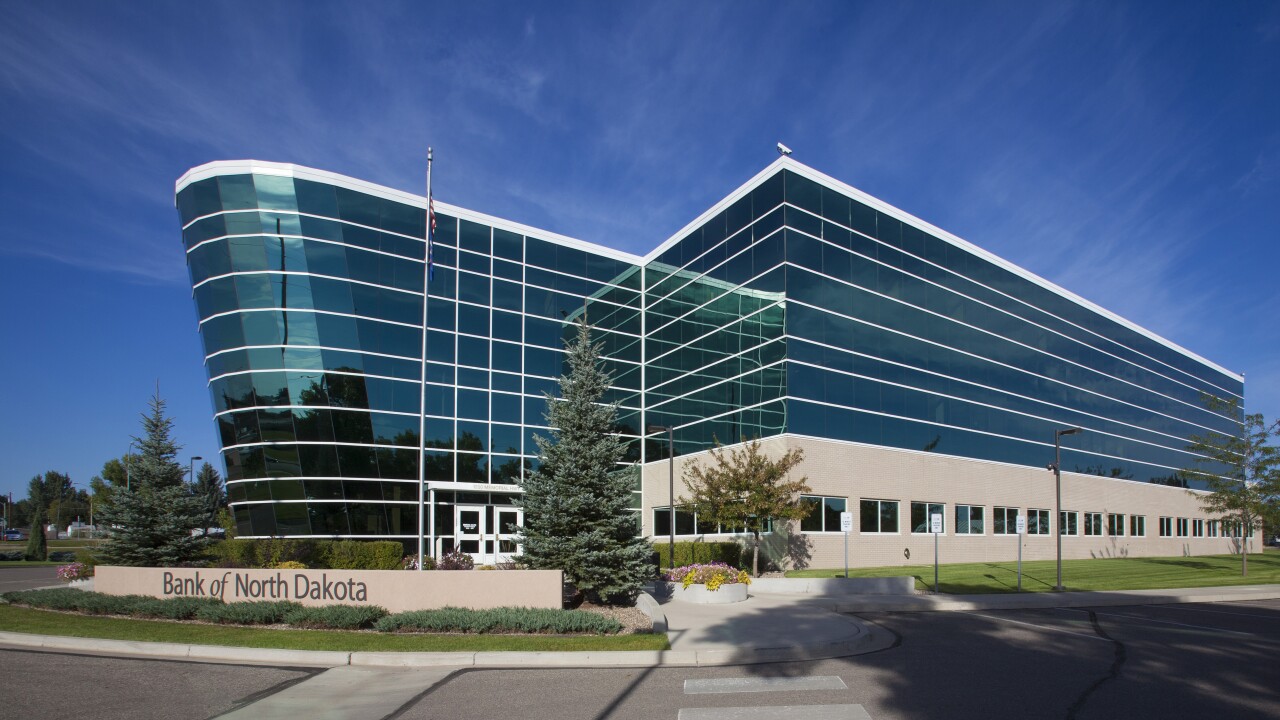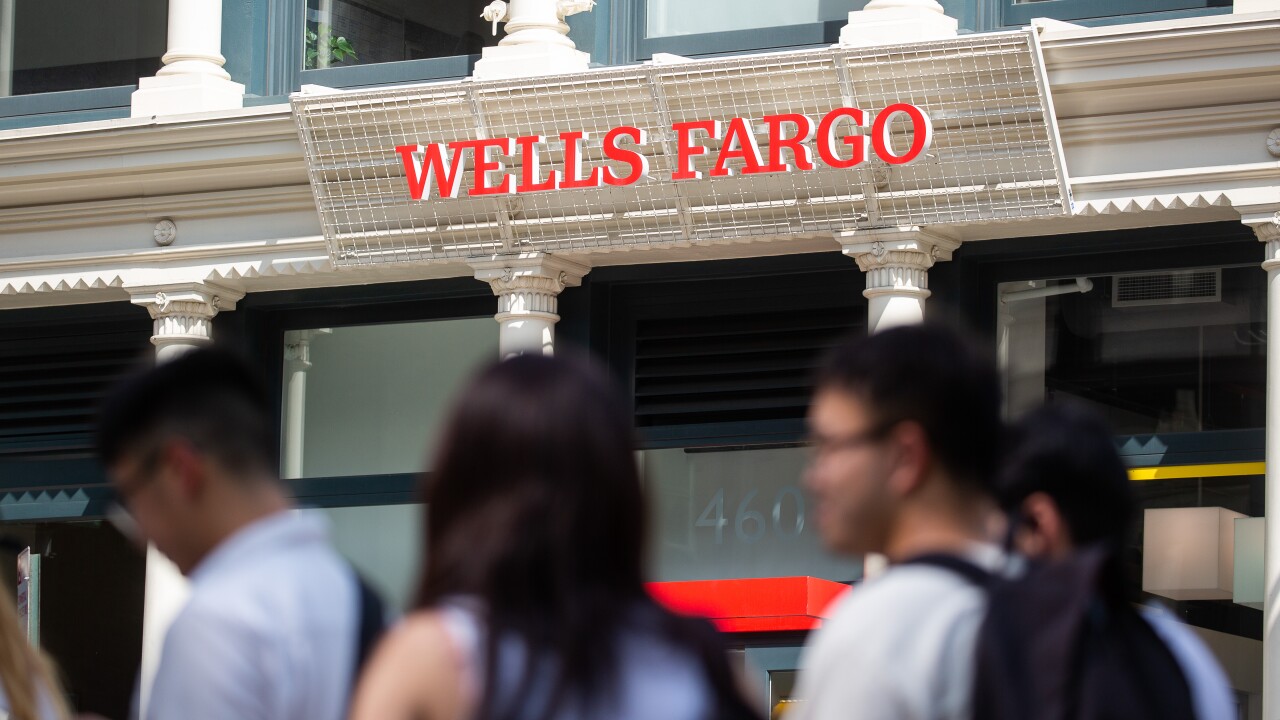Square Inc. is seeking balance as it transitions to a more holistic provider of services including small-business payments and financing, but its lackluster first-quarter earnings suggest the company's strategy is still wobbly.
Square's sales rose 51% to $379.3 million during the period ended March 31, but the company recorded a net loss of $96.8 million for the quarter, disappointing investors, who sent shares down by as much as 20 percent on Friday, the day after it released earnings.
One thing making investors nervous was slow growth for Square Capital, the business-financing arm that was introduced two years ago as a rival to conventional merchant cash advance (MCA) offerings. This year Square began a transition away from MCA toward traditional loans.
Square extended $153 million on cash advances and loans to small businesses during the first quarter, up 4% from the fourth quarter, and the company blamed the slow growth on "challenging credit market conditions."
Competition could be a problem. Square's practice of using its merchant transaction data for risk analysis may seem innovative, but other other agile specialists — including Intuit — are finding ways to use new data streams to limit risk and deliver funds to borrowers.
MCA became a major source of funding during the economic crisis because banks severely tightened up on small-business lending, said Rick Oglesby, research director with Double Diamond Group. But over the last couple of years, lenders have come back into the fold, increasing competition for MCA business.
"As traditional lending sources return to normal, MCA is naturally losing some of its share back to banks," Oglesby said.
Oglesby said he's still bullish on Square in light of its first-quarter earnings. "The core business is still showing robust growth, and the supplemental business are growing even faster," he said.
Square, Intuit and others are hoping to exploit friction between banks and small-business borrowers. Data suggest only 35% of small businesses get approved for loans, and it can take applicants up to 33 hours to gather the documents banks require.
Intuit said it's building good momentum with QuickBooks Financing, a traditional lending service it launched about two years ago. QuickBooks Financing enables users to share information from QuickBooks with prospective lenders with a single click. Applicants typically get an immediate approval or denial, and if the loan is approved, funds arrive within 48 hours.
Intuit acts as a matchmaker for enterprises within its audience of 4 million small-business users and a "curated" list of lenders, said Rania Succar, business leader at QuickBooks Financing.
Credibly of Troy, Mich., is another company transitioning away from MCA toward full-service lending to small businesses. Credibly also uses an instant online application process, combined with a proprietary "data science" model looking at diverse streams of data, including bank statements, to quickly qualify small-business borrowers for loans, according to a spokesperson. Its loans average about $250,000.
In March, Square announced plans to move away from MCA toward business loans originated by Celtic Bank, based in Salt Lake City.
The new sign-up process for Square Capital is similar to its previous approach, where borrowers get cash upfront in exchange for a fixed percentage of daily card sales. The amount owed never changes, but with the shift to loans, Square introduced an early-repayment option that carries a higher interest rate.
By moving to conventional loans, Square could avoid potential issues with regulators in some states, including California, who were asking questions about the structure of alternative loan products like those it previously offered.
Square sees significant growth potential with the new model. "We think they're only beginning to scratch the surface of what's available to use in terms of the number of sellers in our base and how good a product this is for them," Sarah Friar, Square's chief financial officer, told analysts during a conference call to discuss earnings.
Square highlighted other promising signs for its mobile payments services. The company's new contactless card reader has generated 500,000 orders from customers, and its hardware sales rose sharply to $16 million for the quarter, offset by hardware costs of $26.7 million.
The new reader is designed for Near Field Communication-based mobile payments such as Apple Pay; the device also supports EMV-chip card payments, but not swiped card payments.
"We like NFC a whole lot better because of the speed," said Square CEO Jack Dorsey, noting that the new readers could improve consumers' reported frustration with slow transaction speed during the U.S. transition to EMV. "We beat the industry average by seconds, and we think we can get even more speed gains," he said.
Square's numbers for the first quarter included a one-time charge of $50 million that the company paid to settle a lawsuit filed in 2014 brought by a college professor who claimed he created Square's original credit card reader, a dongle that plugged into smartphones. Square posted a loss of about $48 million for the year-earlier period.
Gross payments volume rose 45 percent to $10.3 billion during the first quarter, compared with 47 percent reported during the fourth quarter of 2015. Overall operating expenses rose nearly 72% year over year to $207 million, but part of that included compensating employees with shares, the company said. Revenue from software and data products rose by 197 percent year over year to $24 million.





